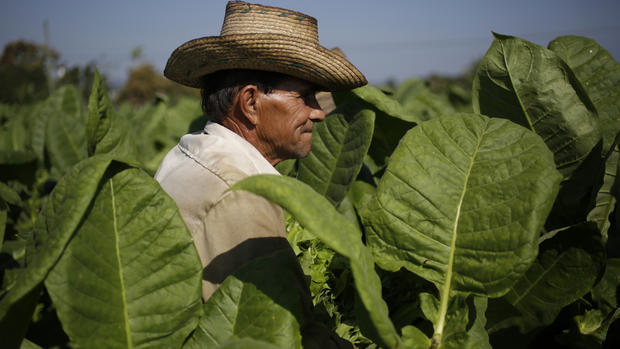U.S. and Cuba to announce agreement to open embassies
WASHINGTON -- President Obama will announce Wednesday that the U.S. and Cuba have reached an agreement to open embassies in Havana and Washington, a senior administration official said.
The announcement marks a major step in ending hostilities between the longtime foes.
"We will formally announce tomorrow that the United States and Cuba have reached an agreement to re-establish formal diplomatic relations and open embassies in each other's capitals," a senior administration official confirmed to CBS News.
The U.S. and Cuba have been negotiating the reestablishment of embassies following the Dec. 17 announcement that they would move to restore ties.
CBS News correspondent Portia Siegelbaum reported officials in Cuba are anticipating a visit from Jeffrey DeLaurentis, head of the U.S. Interests Section in Havana. He is expected to deliver a message from Castro about new diplomatic relations between the two nations.
At the same time President Obama announced the new US-Cuba policy, he also announced Cuba's release of 5-year prisoner Alan Gross. Also, a spy swap took place: the U.S. released three Cuban intelligence officers in exchange for an unnamed Cuban national "intelligence asset."
On April 11, Obama and Cuban leader Raul Castro sat down together in Panama during the Summit of the Americas, the first time heads of state from the two countries had met in more than 50 years. Also, on May 28, the U.S. removed Cuba from its list of state sponsors of terror.
For Obama, ending Washington's half-century freeze with Cuba is seen as a major element of his foreign policy legacy. He has long touted the value of engagement and argued that the U.S. embargo on the communist island just 90 miles south of Florida was ineffective.
Obama and Secretary of State John Kerry are expected to speak Wednesday morning about the embassy openings. The official insisted on anonymity because the official was not authorized to speak publicly about the matter ahead of the president.
Since the late 1970s, the United States and Cuba have operated diplomatic missions called interests sections in each other's capitals. The missions are technically under the protection of Switzerland, and do not enjoy the same status as full embassies.
While the opening of embassies marks a major milestone in the thaw between the U.S. and Cuba, significant issues remain as the countries look to normalize relations. Among them: talks on human rights; demands for compensation for confiscated American properties in Havana and damages to Cuba from the embargo; and possible cooperation on law enforcement, including the touchy topic of U.S. fugitives sheltering in Havana.
